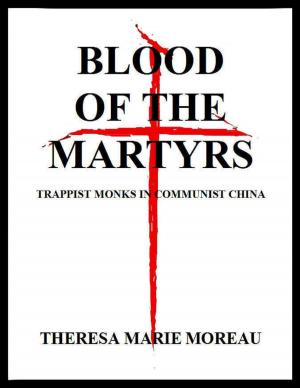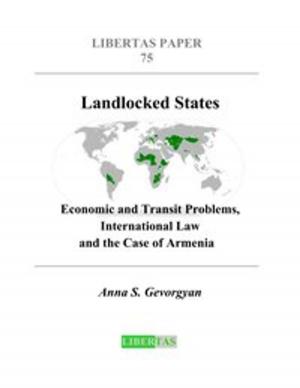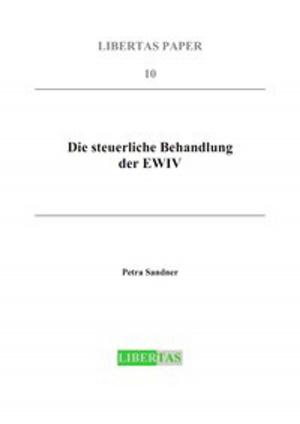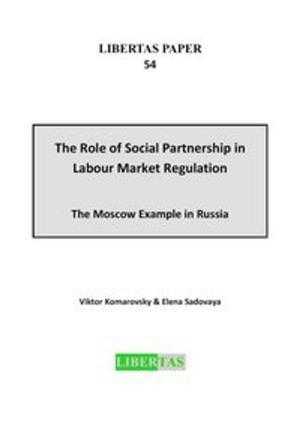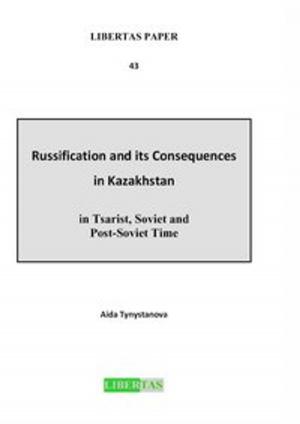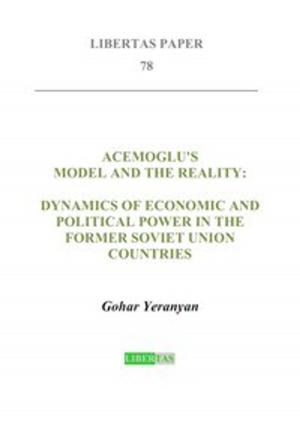The Macedonian Question:20 Years of Political Struggle into European Integration Structures.
Nonfiction, Social & Cultural Studies, Political Science| Author: | Biljana Vankovska, Aleksandar Mitreski, Nedzad Mehmedovic, Didem Ekinci, Dragan Tevdovski, Christopher K. Lamont | ISBN: | 9783946119081 |
| Publisher: | Libertas | Publication: | May 8, 2012 |
| Imprint: | Libertas | Language: | English |
| Author: | Biljana Vankovska, Aleksandar Mitreski, Nedzad Mehmedovic, Didem Ekinci, Dragan Tevdovski, Christopher K. Lamont |
| ISBN: | 9783946119081 |
| Publisher: | Libertas |
| Publication: | May 8, 2012 |
| Imprint: | Libertas |
| Language: | English |
Modern Macedonia emerged in 1945 as one of six constitutive republics of the Socialist Federal Republic of Yugoslavia (SFRY). When Yugoslavia disintegrated in the second half of 1991, Macedonia chose to assert its own independence rather than remain in a truncated Yugoslav state likely to be dominated by Serbia without the counterbalancing influences of Croatia and Slovenia. Macedonia declared independence on 8 September 1991, and today is a democratic multiparty state with a population of around 2 million. According to the 2002 census results, Macedonians make up 64% of the total population, while Albanians are the biggest ethnic minority with 25%. Macedonia’s reforms in the last 15 years have been focused simultaneously on three issues: state building, democratic development and establishment of a functioning market economy. During the 1990s Macedonian political elites clashed with their ethnic Albanian counterparts over the basic idea behind the concept of the state. Various elements in the constitution, the census taking, laws on education, local self-government, and public display of national minority symbols, the ethnic make-up of the police, army, as well as the public administration, were all contested by ethnic Albanians in this period. pitting ethnic Albanian grievances against Macedonian fears for “their” country’s security and integrity. While ethnic Macedonians have insisted on a unitary nation-state, ethnic Albanians have refused to be considered as an ethnic minority in a Macedonian nation-state and have advocated for an official bi-ethnic state system. Political transformation was formulated as a zero-sum game, Armed conflict erupted between Albanian rebels and government forces in 2001 but was quickly ended through an EU- and U.S.-mediated agreement, signed in August of that year. The so-called Ohrid Agreement envisioned a series of political and constitutional reforms, fulfilling much of the demands raised by the Macedonian Albanians throughout the 1990s and introducing some features of power sharing, such as a system of double majorities requiring consent from minorities represented in the parliament to key decisions of parliament, a substantial degree of municipal decentralization, equitable representation in the public administration of the non-majority communities, as well as confidence-building measures to overcome the immediate consequences of the 2001 conflict. Furthermore, the agreement established the principle of achieving equitable and just representation in public administration at the national and local level as the highest priority, a key reform in the public sector. The process of interethnic consolidation based on the Ohrid Agreement is supported by the European Union. The European Union uses the Ohrid Framework Agreement as a key conditionality for further integration of Macedonia. In 2001 Macedonia signed a Stabilization and Association Agreement (SAA) with the European Union that envisaged the successive liberalization of trade and established an institutional framework for cooperation. Since December 2005 Macedonia has been an official candidate for EU membership. This book is an important contribution to the study of the new political history of Macedonia. It deals with a number of important issues since independence including the problem with the Greek objections to the name of the country and the impossibility to brand the nation on the global scale. Issues such as war crimes, the role of international organizations, economic successes and failures, problems of democratization and consolidation are all dealt by the authors of the book. It identifies challenges, failures and successes, but most importantly it also provides important recommendations for the future.
Modern Macedonia emerged in 1945 as one of six constitutive republics of the Socialist Federal Republic of Yugoslavia (SFRY). When Yugoslavia disintegrated in the second half of 1991, Macedonia chose to assert its own independence rather than remain in a truncated Yugoslav state likely to be dominated by Serbia without the counterbalancing influences of Croatia and Slovenia. Macedonia declared independence on 8 September 1991, and today is a democratic multiparty state with a population of around 2 million. According to the 2002 census results, Macedonians make up 64% of the total population, while Albanians are the biggest ethnic minority with 25%. Macedonia’s reforms in the last 15 years have been focused simultaneously on three issues: state building, democratic development and establishment of a functioning market economy. During the 1990s Macedonian political elites clashed with their ethnic Albanian counterparts over the basic idea behind the concept of the state. Various elements in the constitution, the census taking, laws on education, local self-government, and public display of national minority symbols, the ethnic make-up of the police, army, as well as the public administration, were all contested by ethnic Albanians in this period. pitting ethnic Albanian grievances against Macedonian fears for “their” country’s security and integrity. While ethnic Macedonians have insisted on a unitary nation-state, ethnic Albanians have refused to be considered as an ethnic minority in a Macedonian nation-state and have advocated for an official bi-ethnic state system. Political transformation was formulated as a zero-sum game, Armed conflict erupted between Albanian rebels and government forces in 2001 but was quickly ended through an EU- and U.S.-mediated agreement, signed in August of that year. The so-called Ohrid Agreement envisioned a series of political and constitutional reforms, fulfilling much of the demands raised by the Macedonian Albanians throughout the 1990s and introducing some features of power sharing, such as a system of double majorities requiring consent from minorities represented in the parliament to key decisions of parliament, a substantial degree of municipal decentralization, equitable representation in the public administration of the non-majority communities, as well as confidence-building measures to overcome the immediate consequences of the 2001 conflict. Furthermore, the agreement established the principle of achieving equitable and just representation in public administration at the national and local level as the highest priority, a key reform in the public sector. The process of interethnic consolidation based on the Ohrid Agreement is supported by the European Union. The European Union uses the Ohrid Framework Agreement as a key conditionality for further integration of Macedonia. In 2001 Macedonia signed a Stabilization and Association Agreement (SAA) with the European Union that envisaged the successive liberalization of trade and established an institutional framework for cooperation. Since December 2005 Macedonia has been an official candidate for EU membership. This book is an important contribution to the study of the new political history of Macedonia. It deals with a number of important issues since independence including the problem with the Greek objections to the name of the country and the impossibility to brand the nation on the global scale. Issues such as war crimes, the role of international organizations, economic successes and failures, problems of democratization and consolidation are all dealt by the authors of the book. It identifies challenges, failures and successes, but most importantly it also provides important recommendations for the future.

